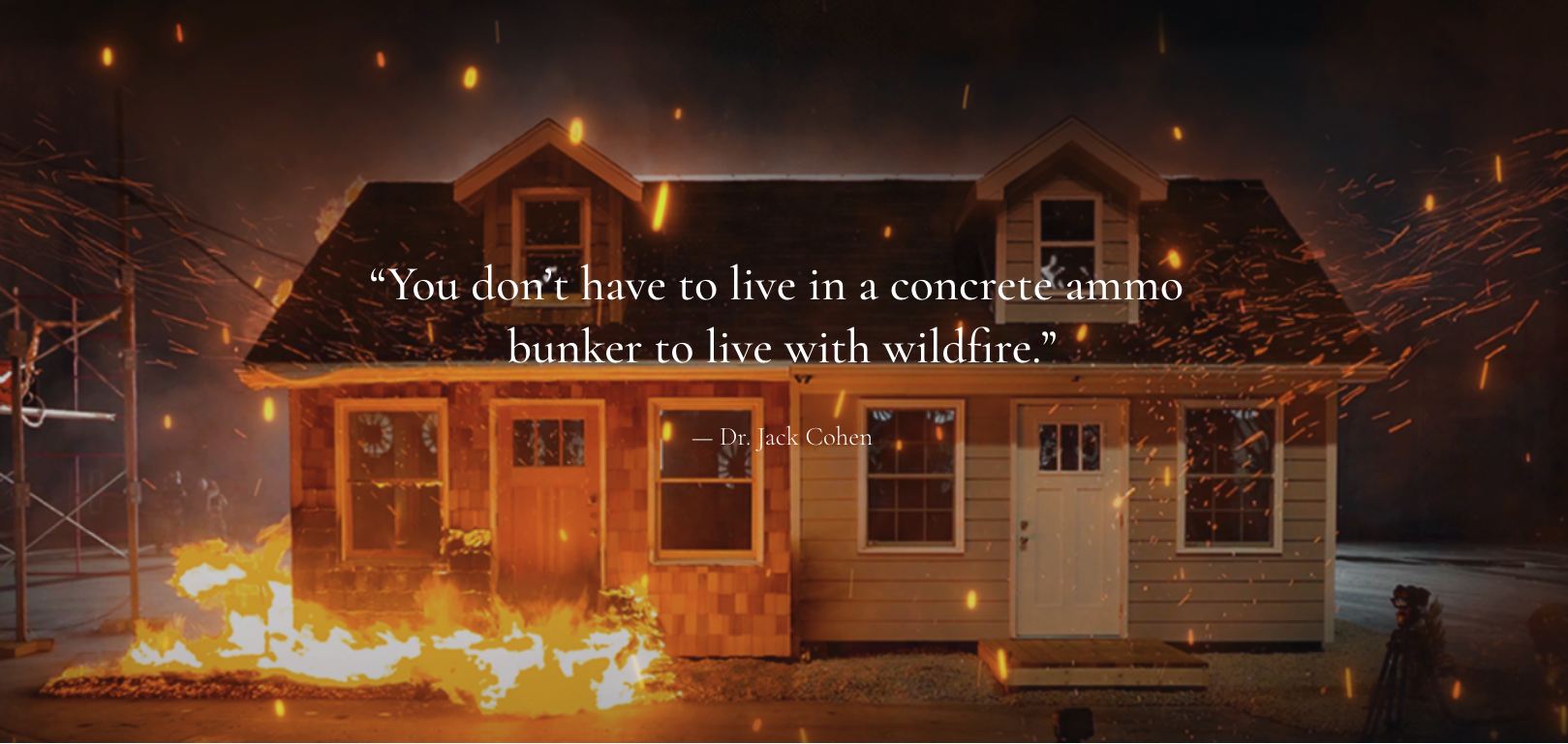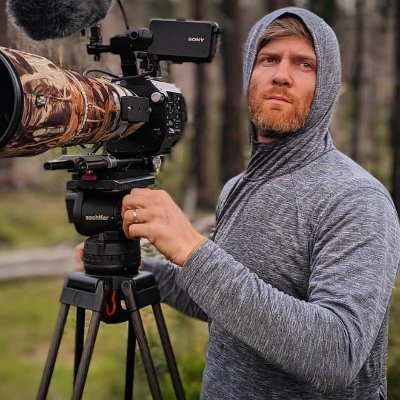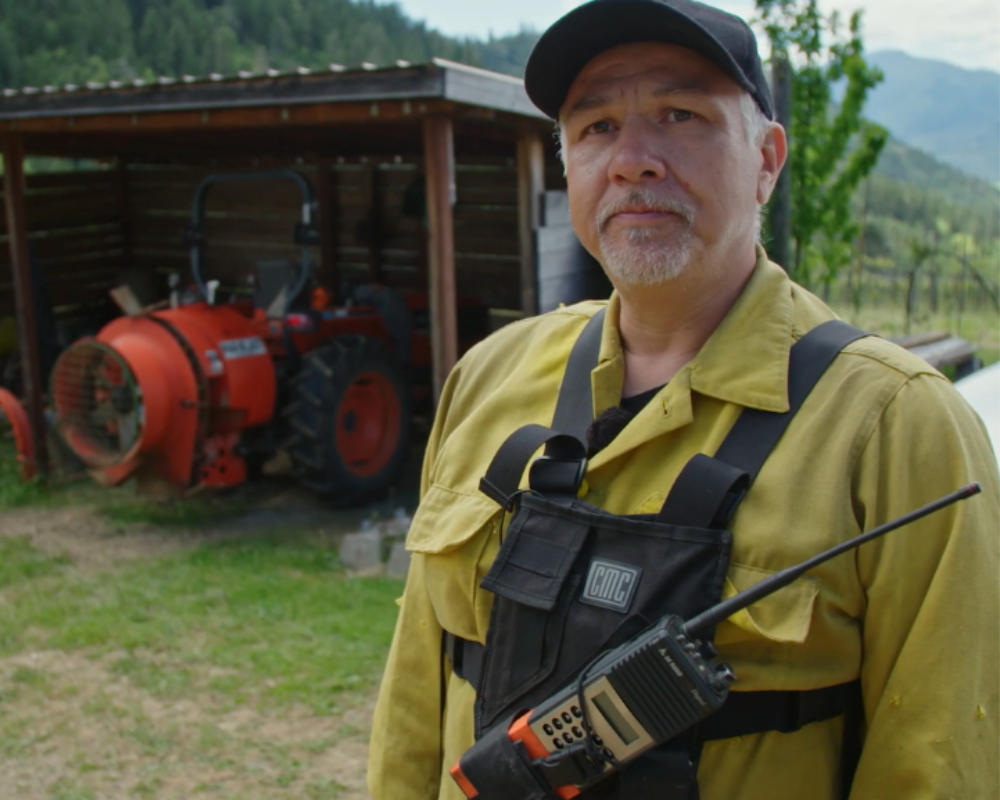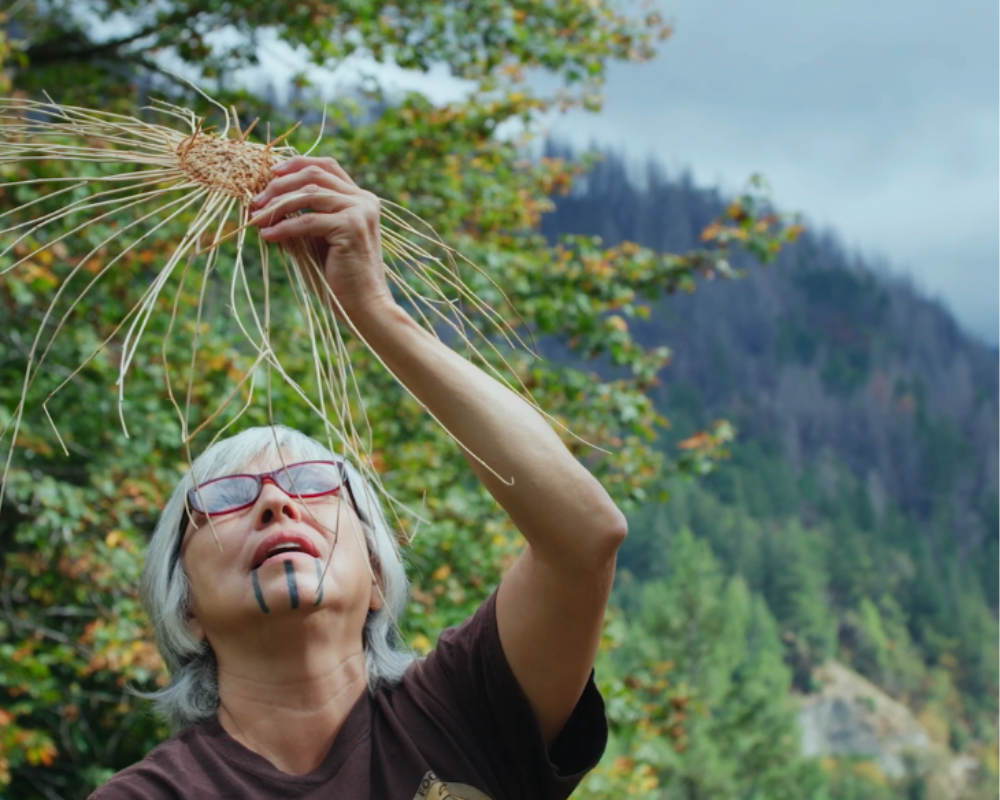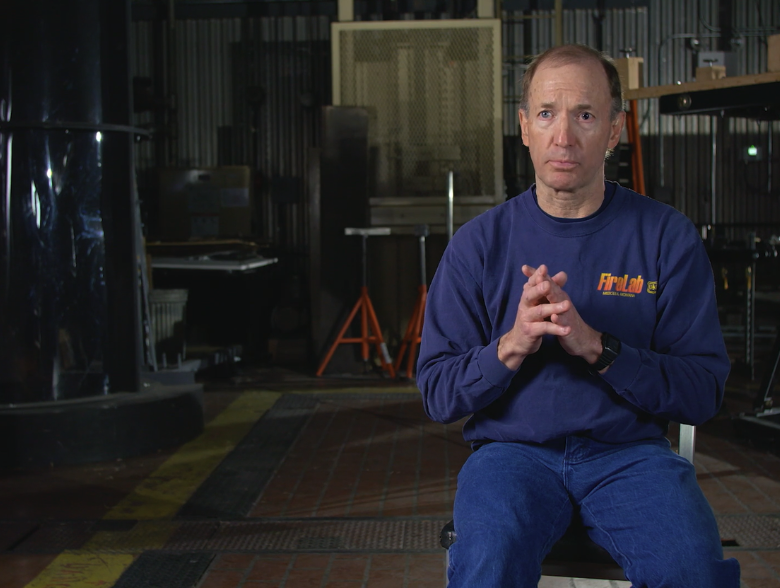In a large scale home-ignition prevention experiment, this home was built to depict two types of homes: one that burns instantly when met with fire, and one that didn’t ignite.
By Helen Quinn Pasin
In the wake of destructive wildfires across the nation, “Elemental: Reimagining Wildfire” takes a crucial and compelling look at solutions to reimagine wildfire through the voices of climate experts, Indigenous people, and fire survivors.
Filmmaker Trip Jennings is also known for his films Rewilding a Mountain (2020) and Postcards from Climate Change (2013).
The film's director, Trip Jennings, founded Balance Media and has worked with National Geographic for over a decade. His films have won dozens of awards around the world and have aired on major networks on every continent.
“For the last four years, I have dedicated myself to visiting burned landscapes and communities destroyed by fire," Jennings said in his director’s statement.
“I am deeply committed to changing the national conversation around wildfire. I have visited with scientists, investigators, and firefighters, and they have told me again and again that we can have healthy forests and safe communities and that we can prepare for and adapt to fire.”
In an interview with the One Earth Film Festival, Jennings said his interest in wildfire goes back 20 years, to his sophomore year at the University of Oregon when he set out to create a student film on something relevant and landed on wildfire. It became evident that there needed to be more clarity between the public understanding of fire and the physics and science behind the phenomenon. Jennings’ work sets out to bridge that gap.
The film highlights the fire expertise of Yoruk tribal members Rick O’Rouke and Margo Robbins, who are on the Cultural Fire Management Council. For generations further back than O'Rourke's grandma’s great-grandma, the Yurok people used fire to increase food production, improve the creation of raw materials from native plants, and manage the landscape.
Jennings said he’s learned a lot about reimagining wildfire and embracing it as a tool from the Yurok.
“Fire’s always been part of the human relationship with the land, and that’s never going to change,” he said.” To me, that feels very different than the way most colonists, most white people like myself, think about it. The very deep relationship that Rick and Margo, and many Indigenous people have with fire just reflects its real existence in this place.”
“Colonization is the reason that fire was taken away from the average person,” says Robbins in the film. “Colonizers were afraid of fire. They just suppressed them. So it went from something that was used in a good way to something that was really done away with, to exclude it completely.”
“I do not fight fire. I light fire.” - Rick O’Rourke, Cultural Fire Management Council (CFMC)
“The number one issue facing our community is to bring fire back to the land.” - Margo Robbins, CFMC
“They started prosecuting us and jailing us for lighting fire, and then they called us arsonists and renegades,” O’Rouke says in the film. There was a mass public hanging of 17 native people for lighting fires,”
Retired USFS Fire Lab research scientist Dr. Jack Cohen has studied fire and how home structures ignite for over 30 years. “If we continue our emergency response approach, wildland-urban fire disasters will be inevitable,” says Cohen in the film. “It’s very frustrating for me to realize that Paradise didn’t have to happen and then listen to an interview of a fire professional saying there is nothing we could have done. Because there is.”
The documentary followed the harrowing escape from Paradise, Calif. as the town ignited from wind-driven embers from a campfire and destroyed the town within a few hours of the fire's start. The 2018 fire killed 86 people and was the most expensive natural disaster on Earth that year. At the time, 2018 was the fourth warmest year in recorded history.
The film explores solutions to preventing home ignition in large-scale burning experiments that yield fascinating and hopeful results.
Dr. Jack Cohen’s research addresses the questions: Why are we putting our time and energy into wildfire fighting efforts with such limited margins of success, and How much vegetation control do we actually need to do in order to eliminate exposure to ignition from a wildfire?
“We have huge opportunities to change the requirements for combustion such that it doesn’t happen,” Cohen says in the film. “We don’t have to control the extreme wildfire in order to keep the house from igniting and burning. And we don’t have to live in a concrete ammo bunker to prevent the next Paradise.”
The documentary continues to the even more recent fires of the last two years when Oregon, California, and Colorado suffered their worst wildfires in recorded history and meets seven more experts with promising solutions: fire risk expert.
Dr. Chris Dunn, fire ecologists Dr. Tania Schoenagel, Roy Wright from the Insurance Institute for Business & Home Safety, firefighter Tim Ingalsbee, expert in global change and biology Dr. Beverly Law, and biologist and poet Maya Khosla.
Jennings concluded his interview with One Earth Film Festival by saying that he’s really optimistic that society can positively change its relationship with fire and predicts that in the next five years, the conversation around wildfire solutions will be happening in a fundamentally different way.
To learn how to take action on your home, click here.
“Elemental: Reimagine Wildfire” screens in the Earth Day Mini Fest on Wednesday, April 19 at 6:30 p.m. CDT at Thatcher Woods Forest Preserve (River Forest), Gorton Center (Lake Forest), and virtually.
Post-film discussion with Facilitator: Cindy Klein-Banai, Experienced Sustainability Professional and Educator
Panelists: Ralph Bloemers, Executive Producer, Elemental: Reimagine Wildfire; Trip Jennings, Director, Elemental: Reimagine Wildfire; Vic Bogosian, Manager Department of Natural Resources, Pokégnek Bodéwadmik, Pokagon Band of Potawatomi, and Richard F. O'Rourke III, Film Subject, Elemental: Reimagine Wildfire, indigenous fire practitioner and Fire Coordinator, Cultural Fire Management Council.

